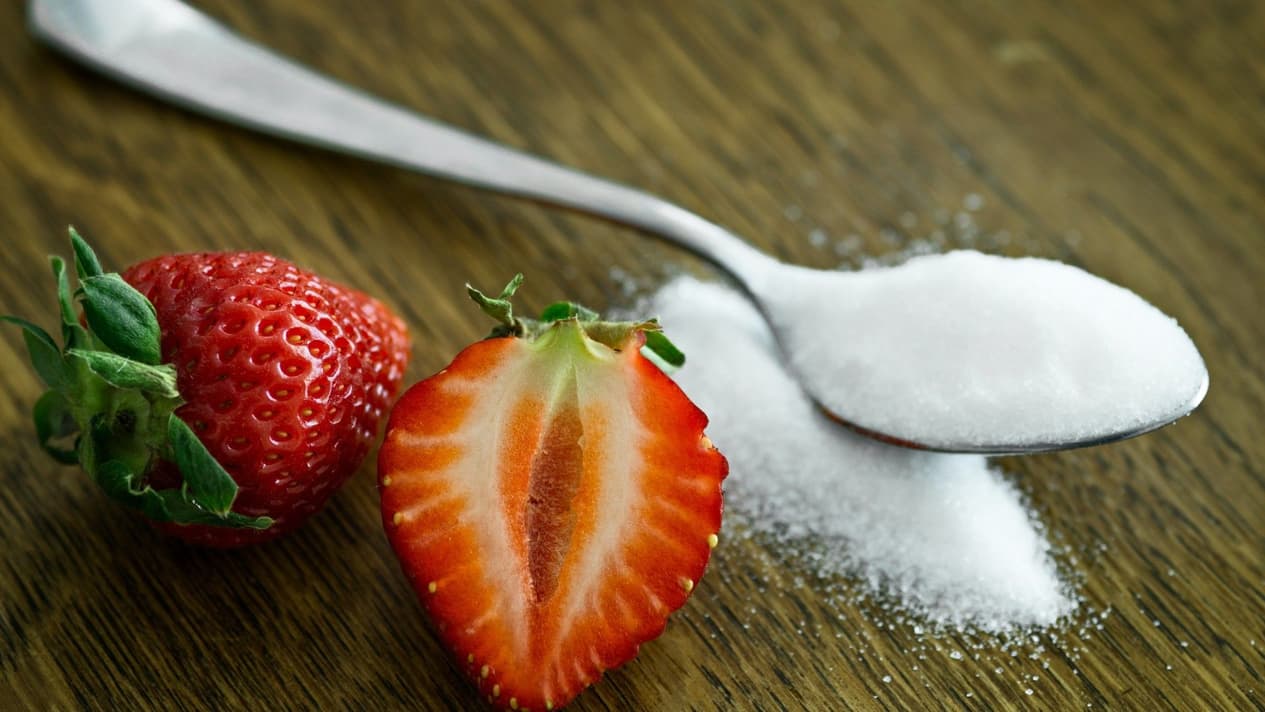If you added an extra couple of sugars into your morning cuppa or sneaked a few cookies into your morning protein shake, you are not alone!
Sugar can be quite addictive, and most of us enjoy its sweet flavour. However, while you may be in good company, you need to show this particular craving who's boss! The not-so-sweet truth is that sugar consumption has increased dramatically in recent years, and our bodies are not designed to consume the levels which are now becoming normal. It's now suggested that sugar is found in about 75% of the foods we eat, with it amounting to as much as 15% of UK adults' daily calorie intake (1). Two hundred years ago, we were only consuming around two pounds of sugar in a year, but today that figure has risen to an alarming 152 pounds a year- that’s three pounds per week! This dramatic shift has reflected the addition of sugar into many food products, but also the availability of sugar-filled products and consumer choices.
What is sugar?
Sugar is a type of carbohydrate. There are two subtypes of sugar: monosaccharides, which are also known as "simple sugars" as they only have one molecule, and disaccharides, which, as their name suggests, are made up of two molecules.
Monosaccharides include:
- Glucose - Glucose is a very common type of simple sugar made naturally in plant foods.
All of the sugars we eat are turned into glucose by the body, as it is the type of sugar that our body uses for fuel. - Fructose is a sugar that has its source in fruits, fruit juices, certain vegetables and honey. Fructose is known as ‘fruit sugar’ and chemically it is a simple or hexose sugar, which absorbs directly into your bloodstream when you eat it. Fructose is naturally sweet, and its ability to absorb moisture is useful in keeping baked goods from drying out or becoming stale.
Disaccharides or polysaccharides are sugars with two or more molecules. Common disaccharides in food include:
- Sucrose - Sucrose is made of glucose and fructose molecules. It's what most people think of when they think of sugar, used to sweeten beverages and in baking. It's made by refining sugars from sugar cane or sugar beets, though it can occur naturally in some honey, maple, and syrups and some fruits and vegetables.
- Lactose is the natural sugar component within dairy products, such as cheese and yoghurt, naturally occurring in the milk of mammals such as cows, goats and yes humans! It’s made of glucose and galactose molecules.
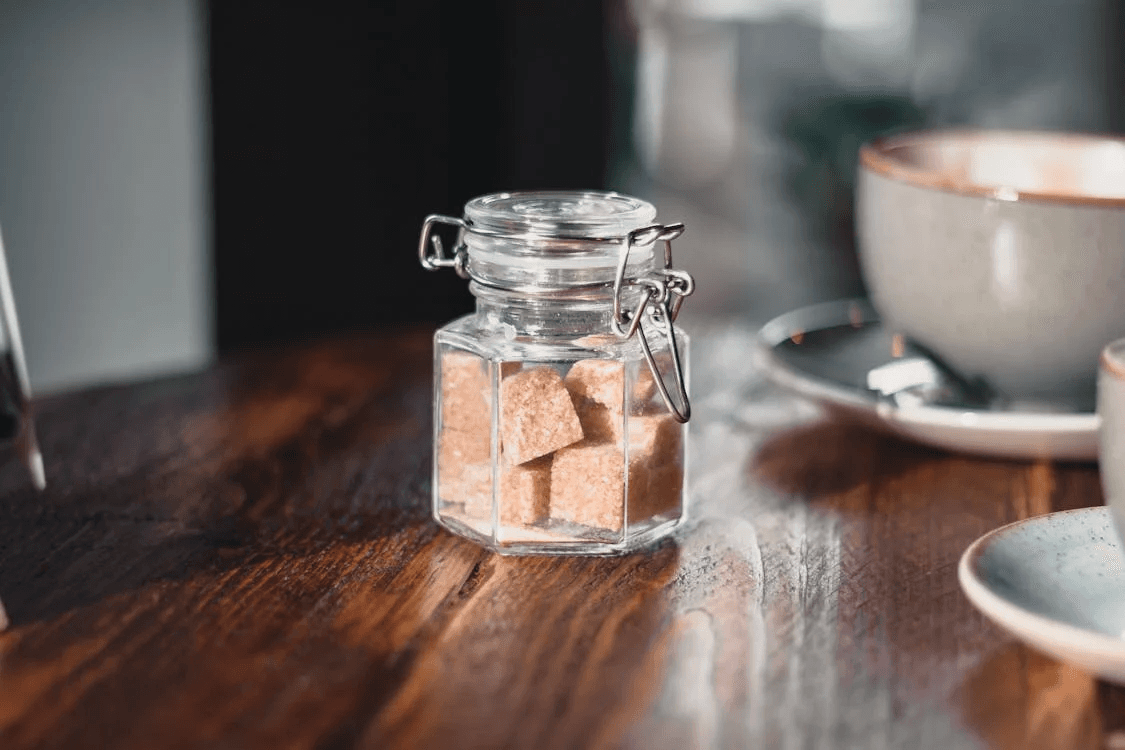
What are the different types of sugar in our diet?
When you think of sugar, you probably think of the white stuff in the sugar bowl, but there are many different types of sugar in our diet. Broadly speaking, we can divide dietary sugar into two groups: naturally occurring sugars and added sugars.
Naturally occurring sugars are those which are found within foods such as fruit, vegetables, honey, maple syrup, and milk. When we talk about added sugars, also known as 'free sugars', these include any sugars or sweeteners that are added to food or beverages during the processing or preparation of them, such as us adding them to our morning coffee or coffees. These added sugars or sweeteners can include natural sugars such as white or brown sugar, honey or caloric sweeteners such as Splenda.
Ultimately, your body processes all sugar in the same way. Natural sugars and added sugars have the same chemical structures. The difference is that natural sugars occur in fruits and vegetables that contain fibre and healthy nutrients, compared to processed sugary foods like cakes, biscuits, and sweets. There isn’t usually a lot of natural sugar present in foods. Even a sweet fruit like an apple has only around 15 grams of sugar. It also has 3 grams of fibre as well as vitamins and antioxidant compounds that may help protect you from cancer and heart disease. Fruits are also full of different and delicious flavours, so ditch the muffins and have fun finding your favourite juicy, sweet fruits instead!
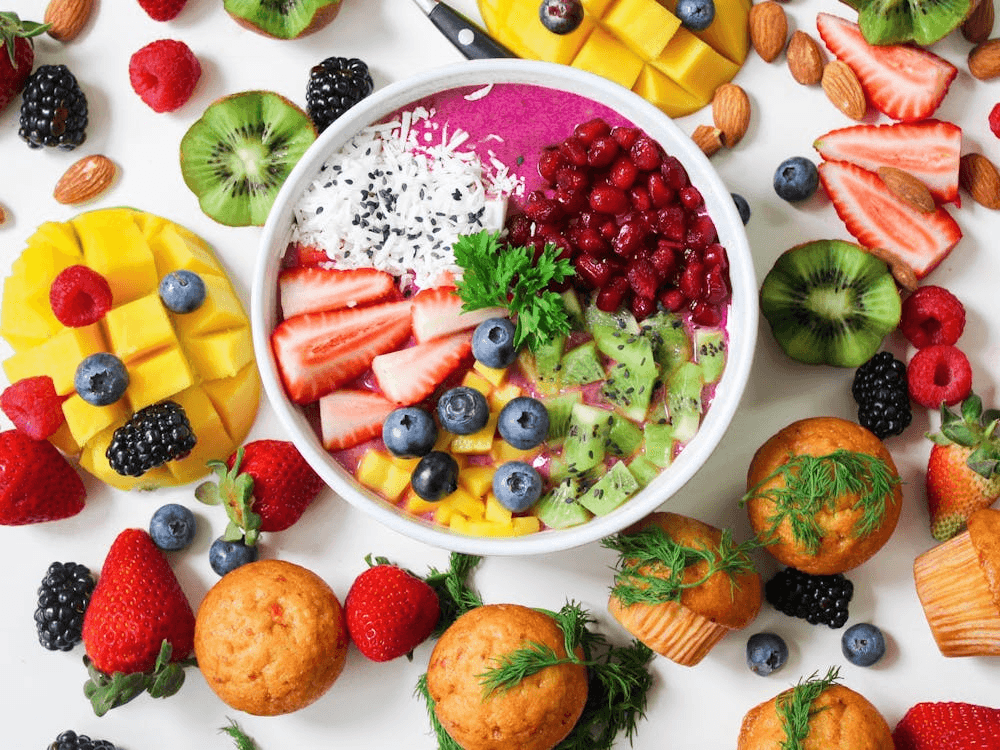
How much sugar should you have in a day?
To give our body the energy it needs, we should look to vegetables, fats and proteins for our sugar intake. According to the NHS, free sugars, or added sugars, should not make up more than 5% of the energy (calories) you get from food and drink each day (2 ). The American Heart Association AHA recommends that the daily maximum amount of added sugars you should eat in a day is 150 calories for men, and 100 calories for women (3).
- Adults should have no more than 30g of free sugars a day (roughly equivalent to 7 sugar cubes).
- Children aged 7 to 10 should have no more than 24g of free sugars a day (6 sugar cubes).
- Children aged 4 to 6 should have no more than 19g of free sugars a day (5 sugar cubes).
- There's no guideline limit for children under the age of 4, but it's recommended that they avoid sweets, sugar-sweetened drinks, and food with sugar added to it.
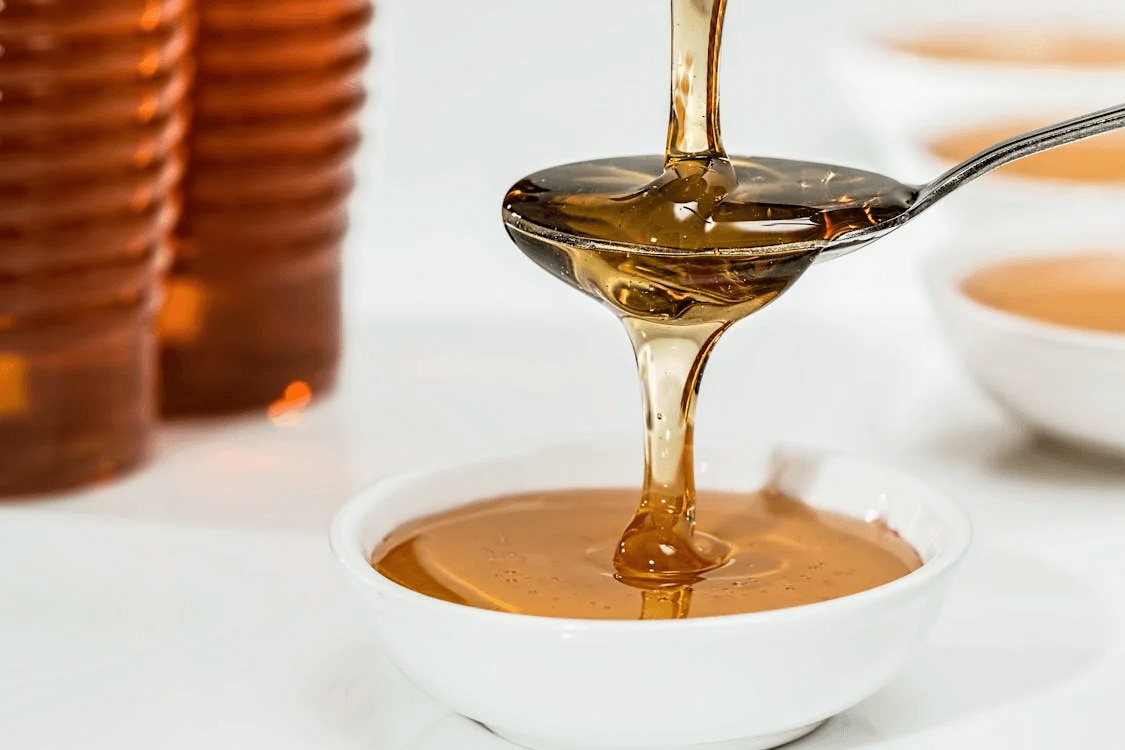
How does too much sugar affect you?
Escaping our exposure to sugar-laden products is not easy today. We are surrounded by food, particularly in the West, where sugary foods are cheap and readily available. We're also hard-wired to seek out sugar, and there is a connection between sugar and the brain. On an evolutionary basis, our primitive ancestors were hunters and scavengers, and sugary foods were an excellent source of energy, so we have evolved to find sugary food desirable and particularly pleasurable. So, we have an innate brain system that makes us like sweet foods since they provide a great sense of energy and fuel.
We are biologically driven to enjoy sugar. Historically, high energy food and high salt were scarce, so these flavours are desirable to us; we seek them out and enjoy them. Our brains are not geared to think that we are going to have an endless supply of these foods, so that drives our overconsumption. So, it may not be a sugar addiction, it could be a biological drive built from pleasure.
- Dr Dwayne Mellor (Dietician)
When we consume sugar, our brains are given a big rush of the feel-good chemical called dopamine, which helps explain why we are more likely to crave chocolate or ice cream after a bad day at work or a night out than a piece of broccoli or a carrot stick! (4)
Getting a dopamine hit means we’re more inclined to turn to sugary foods again, as we want to experience that hit again. This feel-good response that comes from quick sugar fixes is a hard response to turn away from - it’s one of the reasons that turning to high sugar food sources can become addictive and a hard habit to break. It's believed that sugar can be more addictive than opioid drugs! Definitely 'food for thought'...
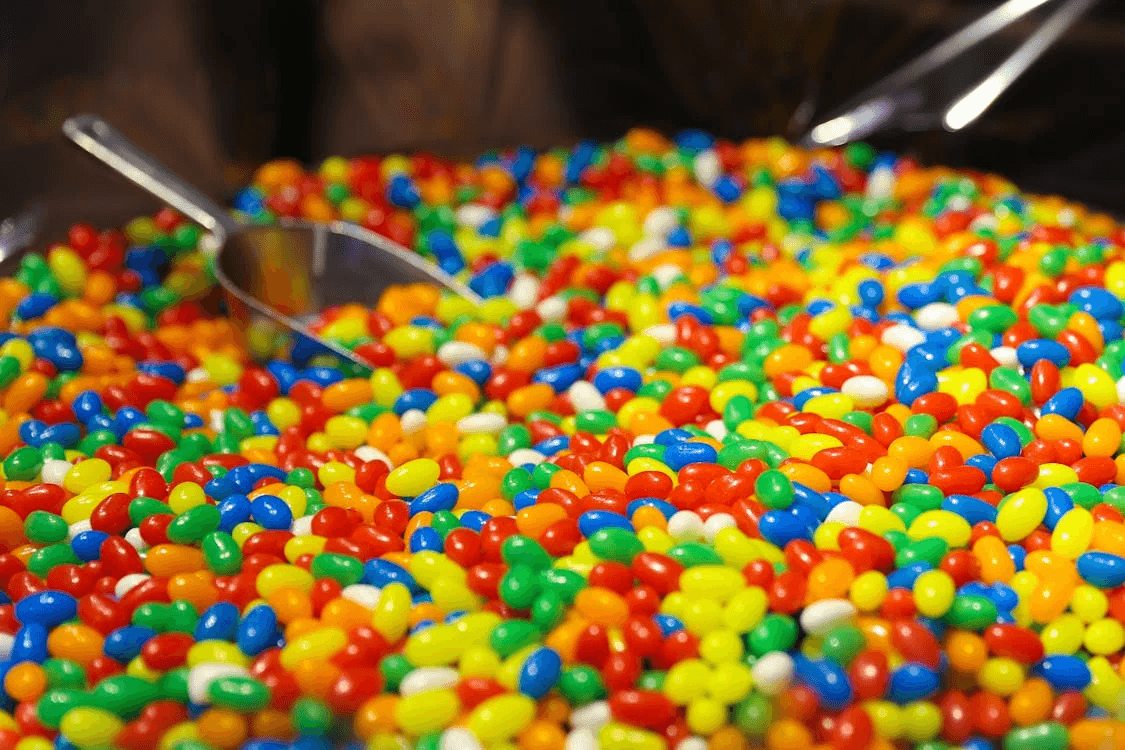
- The Sugar Crash
If you are a regular high sugar user, and then stop, you might start to feel anxious or jittery- this is known as a ‘sugar crash’. A study undertaken in the United States using brain scanning technology showed that sugar caused changes to occur in people’s brains, similar to those who were addicted to drugs such as cocaine and alcohol (5).
Most people think that eating carbs for energy will fix a sugar crash, but it will only temporarily boost energy. The underlying problem is protein malnutrition, and during a sugar crash, the body is looking for protein sources to balance out blood glucose levels. So make sure to eat some protein, otherwise the sugar crashes will continue (6).
- Blood sugar imbalance
When you eat foods containing lots of added refined sugar, especially when they are low in protein and complex carbohydrates, they are metabolised very quickly and enter the bloodstream. This can give us that well-known 'sugar rush' and a burst of energy. Too much sugar can make us feel too 'wired', however, and we may experience other unpleasant symptoms, such as thirst, dry mouth, increased urination and blurred vision. High blood sugar triggers the release of insulin, which then lowers blood sugar, leading to tiredness, dizziness, and often an intense hunger for more sugary foods as the body tries to stabilise its blood sugar levels. This can create a vicious cycle and a sugar dependency. Long-term blood sugar dysregulation has been associated with insulin. Choosing low-sugar options and making sure that all meals and snacks contain protein, complex carbohydrates, and healthy fats can help to stabilise blood sugar levels, as these other nutrients help to stop sugars in food from being metabolised so quickly and spiking blood sugar.
In addition to the short-term effects of sugar over-consumption, more serious, long-term health issues have been identified.

Sugar and oral health
The impact of high amounts of sugar on our teeth can be dramatic. Sugar consumption is directly connected to tooth decay.
Studies show that a select group of harmful bacteria produce acid in your mouth whenever they encounter and digest sugar. These acids remove minerals from the tooth enamel (the shiny, protective, outer layer of your tooth). This process is called demineralisation ( 7).
Saliva helps to constantly reverse this damage in a natural process called remineralisation. The minerals in your saliva in addition to fluoride from toothpaste and water, help the enamel repair itself by replacing minerals lost during an “acid attack” which helps strengthen your teeth.
However, the repeated cycle of acid attacks causes mineral loss in the enamel. Over time, this weakens and destroys the enamel, forming a cavity. The cavity is a hole in the tooth caused by tooth decay, and it is the result of harmful bacteria digesting the sugar in foods and producing acids.
Sugar and inflammation
If you are prone to painful joints, especially if you suffer from conditions such as arthritis, eating large amounts of sugar has been shown to make joint pain worse. Sugar consumption has been shown to worsen inflammation and inflammatory conditions, due to the pro-inflammatory response it causes in the body. Chronic inflammation has been associated with the development of a variety of health conditions, including cardiovascular disorders, psoriasis, diabetes, and autoimmune conditions. For example, a research study looking at regular drinkers of sugar-sweetened soda found their consumption increased their risk of developing rheumatoid arthritis ( 8 ).

Sugar and obesity
By consuming large amounts of added sugar over time, our natural balance of hormones can be impacted. When these are impacted, the critical functions they assist in the body can be impaired, and also lead to weight gain. When we eat sugar, our glucose levels within our bloodstream increase, which triggers the pancreas to release insulin. Having higher levels of insulin causes the body to store more food calories as fat and impacts a hormone known as leptin. Leptin acts as a natural appetite suppressant in the body. It gives out a command to our brains to tell it that we are full and the time to stop eating is now! By having an imbalanced insulin level and consuming large amounts of sugar, we can put ourselves at risk for a condition known as leptin resistance, where the ‘ stop eating!’ message is no longer heard, which can result in weight gain, overeating and potential obesity ( 9).
Sugar and high blood pressure
High salt intake is associated with high blood pressure, also known as hypertension; however, it may surprise you to learn that hypertension has also been shown to be associated with a high-sugar diet. This is thought to be because high levels of glucose can cause damage to the delicate lining of our blood vessels, making it easier for cholesterol to stick to the walls of the blood vessels. This results in hardening of the blood vessels and an increase in blood pressure as a result (10).

Sugar and skin health
Before we set out to blame the years catching up on us, or an allergy to new makeup, sugar may be to blame for our skin looking less than happy. Research from the American Academy of Dermatology suggests glycemic control, or the controlling of our glucose levels, plays an important role in our skin health and acne, and insulin resistance can influence the development of acne. The findings showed that those who switched to a low-glycemic diet showed significantly less acne over a period of time (4).
Sugar and sleep
Consuming excessive amounts of added sugar can mess up our sleep patterns. If you are struggling to fall asleep and remain asleep, then sugar might be the culprit! Our sleep cycles are regulated not only by factors such as light and temperature but also by our glycemic control. If you are regularly consuming large amounts of added sugar and struggling to have good quality sleep, sugar may be a factor.
Sugar and gut health
We shouldn’t be too quick to blame the spice in the curry we had last night for our digestive issues, such as cramping and diarrhoea - too much sugar is also known to irritate the gut. Diets high in sugar can increase the inflammation in our guts and impact the gut bacteria levels. Those who suffer from gut conditions such as Crohn’s disease or Irritable Bowel Syndrome can find that a diet high in sugar can aggravate their conditions due to the high sugar diet leading to more inflammation. If a diet is consistently high in added sugars instead of one which includes fruits, vegetables and whole grains, then constipation can become a problem.
Additionally, high sugar consumption can encourage the growth of pathogenic (bad) bacteria and yeasts in the gut, which can affect the health of the gut microbiome. An overgrowth of pathogens in the gut - known as dysbiosis - has been associated with the development of various digestive, immune-mediated, metabolic, and neurological diseases, and can have a negative effect on our overall health and wellbeing (12).

Sugar and mental health
Sweet foods are often considered to be treats and comfort foods, which make us feel good, but the reverse could be true. As well as our physical health, high sugar consumption may even affect our mental wellbeing.
Regular high sugar intake is linked to mood disorders (13), and a higher incidence of anxiety (14). As previously mentioned, this could be partly to do with the effect of blood sugar peaks and troughs, which can affect our mood, make us feel tired, jittery or anxious.
Eating a very sugar-heavy diet has also been associated with an increased risk of depression (15). It may also give you a foggy brain and impair cognitive function (16).
The odd sweet 'treat' or pudding is fine, but if you're looking to improve your diet to support your mental health, then monitoring your sugar intake could be a good place to start.
Top tips to reduce sugar intake
- The number one top tip to keep track of your sugar intake is to read the label of products and check out the nutritional information. This helps you to determine how much sugar is in the foods or drinks you're eating. Sugars will be listed as carbohydrates (usually including both starches and sugars) and will generally include the phrase “of which sugars” to show how much sugar there is per 100ml or 100g of product.
- High: If the total for sugars is over 22.5g per 100g, then that is considered too high.
- Low: 5g or less of total sugars per 100g is regarded as low
If the amount of sugars per 100g is between these figures, that's regarded as a medium level.

- A massive 90% of the added sugars in our diets come from ultra-processed foods! Invariably, the sugar you want to avoid will be the added sugars found in processed foods. If it doesn't have a label - e.g. whole fruits and veggies - then in general you don't need to worry as much about the sugar content, though of course it's important to eat a varied diet containing a broad range of different foods - eating nothing but bananas as your 'five a day' is not a great idea either! Choosing whole, unprocessed foods, such as unrefined grains, whole fruits rather than juices, lean meats, fish, pulses, nuts, seeds, etc, and plenty of different veggies, can dramatically reduce your intake of added sugar each day.
- Instead of sugary fizzy drinks or sugary squash, go for water, or sugar-free, diet or no-added-sugar drinks.
- Watch your alcohol intake - alcoholic drinks and mixers can be a big source of hidden sugars!
- Dilute your fruit juices, i.e., 50% fruit juice, 50% water (not vodka!)
- Use natural forms of sweetening such as fruits, vegetables, or honey. You can even replace sugar with spices to enhance the flavouring of dishes or drinks - cinnamon and mint add a lovely sweet flavour.
- Low-calorie sweeteners such as stevia are readily available in supermarkets and these can be used in place of standard white or brown sugar in your coffee and tea.
- Limit your access to sugar-filled temptations. Head into your pantry and clean it out! It’s amazing how many packets of cookies or snack bars have hidden themselves in there to be easily found at 3 am when you are feeling peckish or bored.
- Be careful with sauces and dressings; they can quickly contribute to a high sugar intake. A one-tablespoon serving of ketchup contains about 5 grams of sugar, meaning that ketchup is sitting at about 29% sugar-higher than ice cream!
- Rather than spreading high-sugar jam, marmalade, syrup, chocolate spread or honey on your toast, try a sliced banana or cream cheese instead.
- With cereals, choose unsweetened wholegrain breakfast cereals that are not frosted, or coated with chocolate or honey. Also, choose unsweetened cereal and try adding some fruit for sweetness, which will also contribute to your 'Five-a-day' fruit and veg intake. Sliced bananas, dried fruit and berries are all good options.
Sugar consumption - key takeaways:
- Research confirms that consuming large amounts of sugar on a daily basis may pose risks to our overall health and wellbeing, including oral, gut, mental, and physical health.
- Making small changes and choosing healthier, low-sugar options can make a big difference to our daily sugar intake.
- Ensuring that all meals and snacks contain protein, fibre, and healthy fats can help to reduce sugar dependency.
If you enjoyed this article, read these other related articles on our blog:
